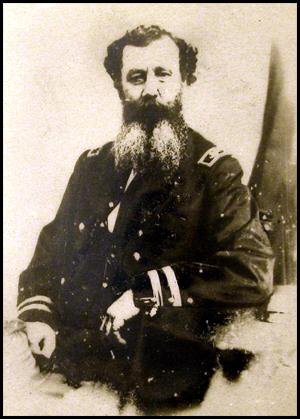Couthouy on:
[Wikipedia]
[Google]
[Amazon]
 Joseph Pitty Couthouy (6 January 1808 – 4 April 1864) was an American
Joseph Pitty Couthouy (6 January 1808 – 4 April 1864) was an American
 Joseph Pitty Couthouy (6 January 1808 – 4 April 1864) was an American
Joseph Pitty Couthouy (6 January 1808 – 4 April 1864) was an American naval officer
An officer is a person who holds a position of authority as a member of an armed force or uniformed service.
Broadly speaking, "officer" means a commissioned officer, a non-commissioned officer, or a warrant officer. However, absent context ...
, conchologist
Conchology () is the study of mollusc shells. Conchology is one aspect of malacology, the study of molluscs; however, malacology is the study of molluscs as whole organisms, whereas conchology is confined to the study of their shells. It includ ...
, and invertebrate palaeontologist
Paleontology (), also spelled palaeontology or palæontology, is the scientific study of life that existed prior to, and sometimes including, the start of the Holocene epoch (roughly 11,700 years before present). It includes the study of fossi ...
. Born in Boston, Massachusetts, he entered the Boston Latin School
The Boston Latin School is a public exam school in Boston, Massachusetts. It was established on April 23, 1635, making it both the oldest public school in the British America and the oldest existing school in the United States. Its curriculum f ...
in 1820. He married Mary Greenwood Wild on 9 March 1832.
Couthouy applied to President Andrew Jackson
Andrew Jackson (March 15, 1767 – June 8, 1845) was an American lawyer, planter, general, and statesman who served as the seventh president of the United States from 1829 to 1837. Before being elected to the presidency, he gained fame as ...
for a position on the Scientific Corps of the U.S. Navy's Exploring Expedition of 1838.
He sailed with the expedition on 18 August 1838, but was sent to the Sandwich Islands for sick leave. Eventually, he dismissed according to Charles Wilkes for attempting to "promote dissension, bring me into disrepute, and destroy the harmony and efficiency of the Squadron."
Although he meticulously labeled all of his specimens from the expedition, Dall recounts how "The authorities in Washington had appointed a reverened gentleman who knew nothing of science, with a fat salary, to unpack and take care of the specimens sent home by the expedition." This gentleman then separated the specimens from the tags thus rendering many of them useless. Couthouy returned to Washington and tried to work up what he could of the collection and was then informed, "to crown all of his misfortunes", that his pay was to be reduced by forty-four percent. He then returned to his profession as a master in the merchant marine, visiting South America and the Pacific.
In 1854, he took command of an expedition to the Bay of Cumaná
Cumaná () is the capital city of Venezuela's Sucre State. It is located east of Caracas. Cumaná was one of the first cities founded by Spain in the mainland Americas and is the oldest continuously-inhabited Hispanic-established city in South ...
, where he spent three unsuccessful years in search of the wreck of the Spanish treasure ship ''San Pedro'', lost there in the early part of the century.
A good linguist
Linguistics is the scientific study of human language. It is called a scientific study because it entails a comprehensive, systematic, objective, and precise analysis of all aspects of language, particularly its nature and structure. Linguis ...
, he spoke fluent Spanish, French, Italian, and Portuguese, and had mastered several dialects used in the Pacific Islands
Collectively called the Pacific Islands, the islands in the Pacific Ocean are further categorized into three major island groups: Melanesia, Micronesia, and Polynesia. Depending on the context, the term ''Pacific Islands'' may refer to one of se ...
.
In the American Civil War
The American Civil War (April 12, 1861 – May 26, 1865; also known by other names) was a civil war in the United States. It was fought between the Union ("the North") and the Confederacy ("the South"), the latter formed by states th ...
, Couthouy was ordered to command on 31 December 1862, which was wrecked, and Couthouy made prisoner. He later commanded .
Finally, he commanded during the Red River Campaign. On 2 April 1864, he was shot by a sniper and died the following day.
See also
References
* Abbott, R.T., and M.E. Young (eds.). 1973. ''American Malacologists: A national register of professional and amateur malacologists and private shell collectors and biographies of early American mollusk workers born between 1618 and 1900.'' American Malacologists, Falls Church, Virginia. Consolidated/Drake Press, Philadelphia. * Dall, W.H. 1888. ''Some American conchologists.'' Proceedings of the Biological Society of Washington 4:95-134. * Johnson, R.I. 1946. ''Occasional Papers on Mollusks, Museum of Comparative Zoology, Harvard University'' 1(5):33-40.Further reading
*Joseph Pitty Couthouy: The Death of a Sailor-Scientist; edited by Gary D. Joiner and Jimmy H. Sandefur. In {{DEFAULTSORT:Couthouy, Joseph Pitty 1808 births 1864 deaths People from Boston United States Navy officers American paleontologists Conchologists People of the United States Exploring Expedition Military personnel from Massachusetts Union Navy officers Union military personnel killed in the American Civil War